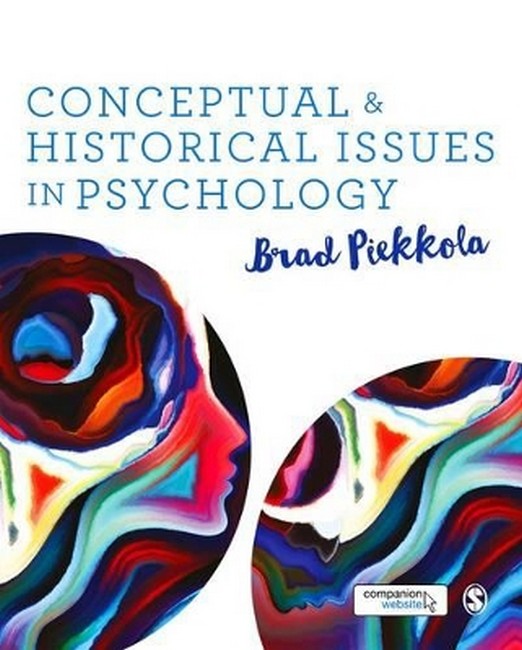Brad received his PhD from the University of Victoria, Victoria, BC, Canada in 1989. His doctorate was in Personality/Theory. He taught Introductory Psychology, History of Psychology, Cognitive Psychology, Psychology of Personality, and Theoretical Psychology at Vancouver Island University from 1989 until his retirement in 2015.
Request Academic Copy
Please copy the ISBN for submitting review copy form
Description
Chapter 1 - Psychological Inquiry as an Evolving Human Practice Chapter 2 - Historical Conceptual Issues Chapter 3 - Science and Psychology Chapter 4 - Physiology and Phenomenology Chapter 5 - Nature and Nurture Chapter 6 - The Mind-Body Problem Chapter 7 - Philosophy of Science Chapter 8 - Mainstream and its Critics Chapter 9 - Critical Psychology and Feminist Psychology Chapter 10 - Psychological Methods and Practice Chapter 11 - The Cognitive Revolution Chapter 12 - Free Will Versus determinism
Students will find this text a thoroughly engaging journey into Psychology's history and foundational assumptions. -- Fiona Hibberd Brad Piekkola grapples with cognitive and biological histories rarely considered in the conceptual considerations of psychology in such a way that allows students to be critical and mindful of today's practises within the discipline. -- Katherine Hubbard Conceptual and Historical Issues in Psychology offers an interesting overview of some key conceptual issues that psychology has grappled with throughout its history. This book will be particularly useful for students of psychology who wish to explore the epistemological foundations of the discipline. -- Eleni Andreouli Conceptual and Historical Issues in Psychology by Brad Piekkola provides the student with the backdrop against which the discipline of psychology has emerged, including its most challenging conceptualisations: mind and body, nature and nurture, free will and determinism. The narrative account from past to present and the engagement with approaches from dominant to critical is expertly balanced for those students keen to understand how psychology has developed across diverse contexts. Whilst providing a comprehensive overview, the themes, topics and tools covered are fundamental to a nuanced understanding of the discipline. It invites the reader to grapple with the theoretical underpinnings of psychology and the challenges it faces including, importantly, contemporary challenges such as postmodern and feminist approaches. With this book, and its supporting material, the student is provided with the opportunity to think through the role of psychology within the context of history, philosophy, science and the world in which we live. -- Rose Capdevila

